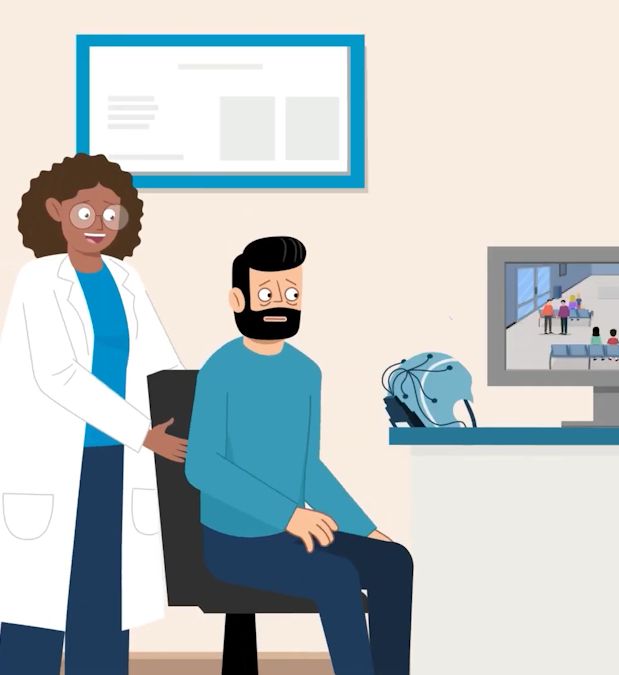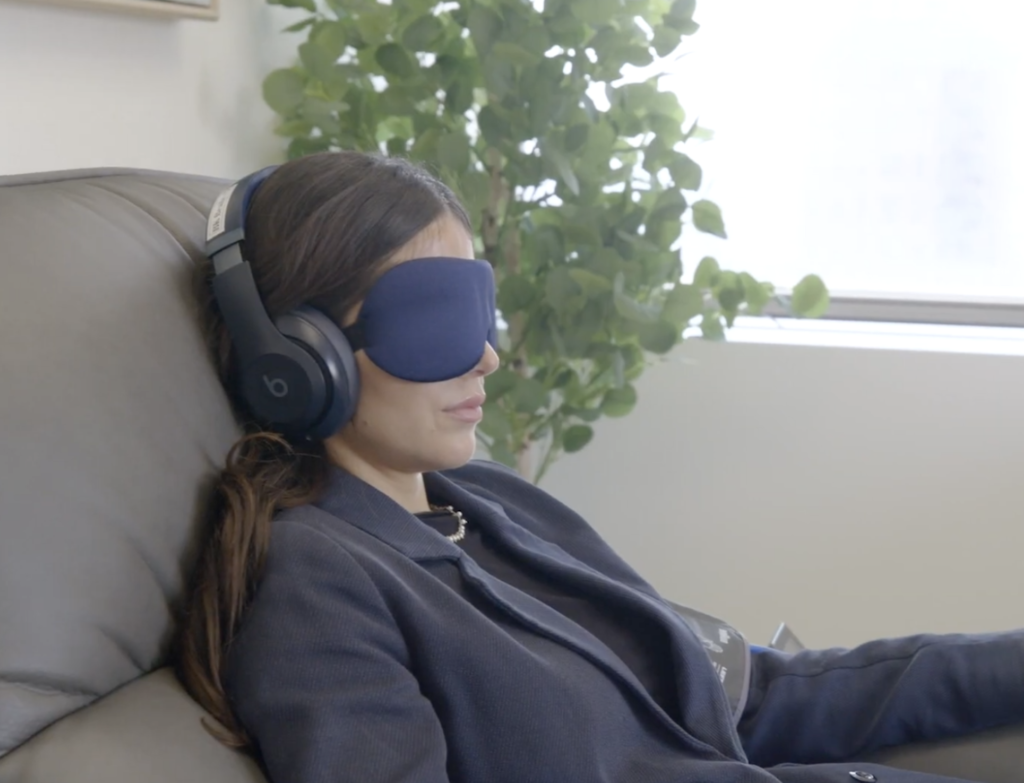Living with post-traumatic stress disorder, or PTSD, can feel like being stuck in survival mode – patients suffer from overwhelming anxiety, insomnia, depression, loneliness, mood swings, emotional exhaustion, and other symptoms, day after day. For many, standard treatments like medication and talk therapy only go so far. Symptoms may resurface, side effects can pose significant challenges, and the idea of revisiting past trauma can feel overwhelming.
Now, there’s a new approach – one that’s changing how we treat PTSD. Using a computer simulation and EEG headset, Prism treatment empowers individuals to gain control over their stress responses in a safe, structured way. It’s used under the guidance of healthcare professionals and serves as an adjunct to standard PTSD treatments.
At Keta Medical Center, we’re proud to offer this new breakthrough, FDA-approved treatment that’s designed to help patients regulate brain activity linked to PTSD symptoms. Officially launched in the United States in January 2024, Prism is the first self-neuromodulation device for PTSD to receive FDA approval.
Prism is also recognized as a groundbreaking category-changer by the scientific community, and has earned multiple prestigious awards, including the 2021 Nature Spinoff Prize, sponsored by Nature, the world’s leading scientific research journal. For those struggling with PTSD who haven’t found relief with traditional methods, it truly offers new hope.
What makes Prism different?
Prism is unlike the therapies you may have tried before. It doesn’t rely on medication or require you to talk about your trauma. Instead, Prism uses advanced brain technology to help you regulate the part of your brain that triggers PTSD symptoms – the amygdala.
This is possible thanks to a scientifically developed biomarker that maps amygdala activity using EEG data, giving you real-time feedback on how your brain is functioning. Through a series of guided sessions, you learn to calm this activity and build new, healthier patterns of response to stress.
For many people with PTSD, retraining the brain in a non-invasive, medication-free way and without having to relive past trauma is life-changing. Prism offers a new path to healing without the common barriers of traditional treatments, making it ideal for individuals seeking a more natural, empowering way to heal.
Prism is especially helpful for people who:
- Have tried therapy or antidepressants without lasting success
- Want relief without medication or unwanted side effects
- Struggle to talk about traumatic experiences
- Are seeking a treatment that promotes long-term self-regulation
Unlike traditional neurofeedback, which provides information on general brainwaves, Prism is uniquely precise. It uses a breakthrough, newly developed technology that applies machine learning to link electrical brain activity (EEG) with deep brain imaging data (fMRI), allowing it to focus specifically on the brain region that governs fear and emotional reactivity.
How it works: Training your brain to heal
Prism therapy is structured, supportive, and remarkably straightforward. You’ll wear a lightweight EEG headset and view a computer screen that simulates a crowded waiting room with animated characters – avatars that reflect what’s happening inside your brain!
At first, these avatars are loud and agitated, just like an overactive amygdala during a stress response. But as you apply a calming mental strategy – such as thinking of a serene place, a meaningful memory, or a grounding emotion – the avatars begin to settle down. What you’re seeing in real time is your brain learning to regulate itself.
This interactive system is based on self-neuromodulation, or the brain’s ability to rewire its responses through experience. Over time, you develop new neural pathways that support emotional regulation, resilience, and a sense of control.
Each session lasts 30 minutes. The full treatment consists of 15 sessions over 8 weeks, and some patients benefit from follow-up booster sessions every few months. The experience is comfortable, pressure-free and guided by our medical professionals.
Prism: Backed by research and clinical results
PTSD affects about 4% of Americans, including many who develop symptoms months or even years after the initial trauma. Common triggers include assault, accidents, natural disasters, and illness. Women are disproportionately affected, with rates as high as 10%. PTSD often co-occurs with other mental health conditions like depression or anxiety.
Traditional treatments like antidepressants and talk therapy can help, but they’re not always enough. In fact, up to 60% of PTSD patients don’t get full relief from standard treatments. Many experience recurrence of symptoms, and some avoid care entirely due to stigma or fear of revisiting their trauma.
That’s where Prism can help. A multi-center clinical study – conducted across multiple research sites to ensure diverse and reliable results – evaluated Prism in 79 individuals with chronic PTSD. Many had not experienced improvement with other treatments, yet they got powerful, lasting benefits with Prism:
- 67% of participants saw a clinically significant reduction in PTSD symptoms
- 32% achieved full remission
- Improvements in sleep quality, mood, and day-to-day functioning
- 90% patient compliance, with a low dropout rate
- Only mild and transient side effects, such as headache or fatigue, were reported
Patients in the study showed a decrease in PTSD symptoms of 13.5 points on average on the so-called CAPS-5 scale, a measure used by clinicians to assess PTSD severity. That’s more than twice the amount considered clinically meaningful. Just as importantly, patients continued to improve even after the treatment ended, suggesting that Prism builds skills that last – much like learning a language and using it in everyday life.
Is Prism right for you?
If you’re living with PTSD and haven’t found the relief you’re looking for, whether from therapy, medication, or both, it may be time to consider something new. Prism is safe, scientifically backed, and focused on putting you back in control of your emotional responses.
We at Keta Medical Center are proud to be one of the few clinics in the U.S. offering this next-generation treatment. Our experienced team is here to support you every step of the way, in a calm and compassionate setting.
Call us today at (212) 548-6182 or email us to schedule a free consultation. Together, we’ll explore whether Prism is the right fit and help you find a path toward relief, recovery, and resilience.




